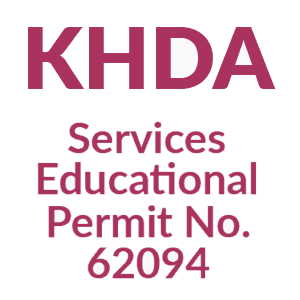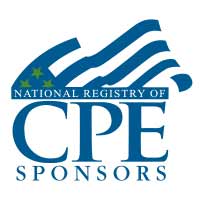Classroom Sessions:
| Date | Venue | Fees | |
|---|---|---|---|
| 06 - 10 May 2024 | Singapore City - Singapore | $5,950 | |
| 01 - 05 Jul 2024 | Dubai - UAE | $5,950 | |
| 09 - 13 Sep 2024 | London - UK | $5,950 | |
| 18 - 22 Nov 2024 | Dubai - UAE | $5,950 |
INTRODUCTION
LNG has gained immense traction and progress in the recent past. With LNG businesses projected to be in full throttle the need to understand it, including the commercial and technical risks in the end to end LNG chain and operations, is a must for all players that are involved or looking to be involved in the LNG industry. Especially those looking for opportunities to either expand or diversify their existing business into the expanding LNG industry.
This GLOMACS training course on Fundamentals of LNG covers the fundamental, technical aspects and practical commercial considerations in LNG from pre-fixture activities, terminals, through to LNG transportation. This including contracts, terminal operations, tanker loading and discharge procedures, and LNG custody transfer measurement and calculations. Learn more about the LNG industry and be equipped as you aim to stay ahead, look for opportunities and get ahead in this niche business.
Objectives
- Gain an overview and the fundamentals of the entire LNG process chain
- Understand LNG cargo transfer operations from both ship management and terminal perspectives
- Understand the trade routing and cargo management options for LNG
- Consider and select the best options for LNG vessel types and containment systems
- Make accurate measurements and calculations of LNG custody transfer
- Examine the impact of various design codes and guidelines on LNG ship and shore transfer management
- Better manage LNG supply transportation contracts and shipping documents
- Examine LNG incidents and evaluate tanker safety, associated risks and requirements to better manage your LNG tanker operations
- Learn in detail about the LNG tanker business and operations
Training Methodology
This intensive 5-day training course will equip you with a detailed practical grounding in the fundamentals of advanced LNG. Theory based and delivered in a practical method, including case studies and in a workshop format you will learn the practical tools and techniques that can be utilised to manage commercial and operational risks more effectively and make better practical investment decisions.
- Reinforce knowledge about operations that are carried out in accordance with all relevant national and international maritime legislation, local regulations, and industry best practices
- Evaluate the different procedures and factors affecting cost of the operation
- Ensure overall safety for any LNG operation on the use of correct size and number of fenders and certified tested hoses
- Become familiar with LNG vessels, operations and LNG STS equipment
- Enhance understanding of Ship-to-Ship transfer equipment, design, maintenance - and training methods for STS
- Familiarise the differences of Person in Overall Advisory Control, Mooring Master and Master of the Ship
- Establish a useful methodology in reducing risk
- Understanding LNG environmental challenges
- Recognise and understand differences in operations and hazards between oil and gas vessels
- Understand requirements for LNG vessel compatibility and Optimoor studies and follow an LNG spill response case study
Organisational Impact
Your organisation will gain a vast range of LNG fundamental skill sets including:
- Supply Chain – Personnel involved in crude oil/gas.
- Energy and Logistics Providers – Ship-brokers, traders, shipping agents, claims departments staff, loading masters, cargo inspectors, surveyors.
- Administrative and Non-Operational office staff that lack ‘on hand’ practical experience.
- Oil & Gas Industry – Management who have to formulate and take charge of cargo acceptance policy and practice
Personal Impact
Gain a practical grounding and learn the Important Aspects of LNG, Operations and the future of Energy.
- What Regulations and Guidelines are Governing Operations?
- Master the Parties Involved in the Transfers and their Relationship to One Another
- POAC Performing Different Roles at Particular Point of the Operations
- Pre-planning and Risk Assessment Considerations for LNG
WHO SHOULD ATTEND?
This training course is suitable to a wide range of professionals but will greatly benefit:
- LNG suppliers, traders and distributors
- Ship owners and operators
- Superintendents and safety officers
- Technical and operations executives
- Charterers and traders
- Ship brokers
- Port and terminal operators
- P&I club and marine insurance
- Ship Owners and Managers
- Offshore Vessel and FPSO Owners and Operators
- Oil Majors, NOCs and Independents
- Ship Superintendents and Safety Officers
- Ship Officers and Crews (Master, Chief Officers, Chief Engineers etc)
- Loading and Mooring Masters
- STS Service Providers
- Liquid Cargo and Bunker Surveyors
- Ports and Terminal Operators
- P&I Inspectors and Executives
- LNG FSU Owners, Managers, Operators
- Company Assurance Managers and Superintendents
DAY 1
Types of LNG Carriers, Terminals, Storage and Tanks/LNG Treatment and the Science
- LNG terminal and vessel - main types
- Vessel design - Moss Rosenberg, Membrane, Steamships
- Storage design and Gas detections systems
- The science of LNG -.as an energy and power source
- The IMO involvement
- Advantages of LNG as an energy source
- Co2 and Emission Control Technology [E.C.T]
- Carbon Capture and Storage and LNF designs for the future. Are we there yet?
- Boil Off Gas characteristics and dual fuel options
- Diesel, Electric and LNG powered vessel systems on the market
- LNG Technical comparisons and containment systems
- Regasification terminal locations, Land based, Regas vessels
- Treatment of LNG and methods
- Specific Characteristics of LNG
- LNG - What is it and why do we want more of it?
Applicable Safety Codes and Charterer’s Requirements
- International Gas Code vessel descriptions »» LNG Tank Type »» LNG Vessel types
- International Safety Management, ISM Code and the basic requirements and training
- Safety Management Systems [SMS] in the LNG Field
- Vessel and On board LNG procedures and training
- S.P - International Ship and Port Security Codes and Regional security issues
- Tanker Management Self-Assessment
- What is the TMA, who is it for?
- TMA Overview of elements and stages
- How the TMSA is used
- The SIRE inspection system. What is it and why have it for LNG?
DAY 2
The Stages of LNG Cargo Cycle
- What are the stages?
- Why do we have them?
- What do they achieve?
- Regasification terminal locations -- Land based Regas vessels System
- Overview: typical schemes and operating principles
- LNG Transfer system design and parameters Contributors to Boil off Gas
Preparation of Cargo Cycle – LNG Terminal Compatibility Studies
- Roles and responsibility of terminal in LNG cargo transfer
- Terminal loading and discharging
- Ship-to-Shore operations interfaces
- Compatibility forms
- LNG Cargo Transfer checklists and forms required
- LNG Cargo Transfer equipment required
- LNG Cargo hazards, safety and risks that exist
- LNG Cargo controls:
- Roles of Fibre Optics in LNG Transfer and operations
- LNG Cargo training required for personnel (LNG Preparations forms)
DAY 3
LNG Transfer Systems -Naval Architecture [Ship Design] and Available New Technologies
- Ship to Ship to shore Transfer systems - Naval Architecture [ship systems] and the Terminal interface
- Ship to Platform Transfer systems - Naval Architecture [ship systems] and the Terminal interface
- Ship to Ship Transfer Systems - Naval Architecture [ship systems] and the vessel interface
- Ship connected transfer systems and tandem configurations for ship to ship
- System Uptime considerations of effective operations
- Meteocean conditions, prediction tools and weather monitoring
- Arrival preparations and checklists
- LNG Loading Arms Abilities – Technology, vendors and designs
- Sensor Technologies and Latest Cryogenic Hose designs, testing and type 8 inch and 6 Inch
- Dynamic Positioning what is it and why do we have it DP 1. DP 2 And DP 2
- Manoeuvring with and without tug assistance or DP
- Jetty Approaches – Finger or Face Terminal Design Interface
- LNG Pre-loading procedures alongside
- Ramp up, loading and ramp down, actions and precautions
- LNG Ramp up, increasing loading rate
- Tank loading procedures
- Ramp down and the topping off tanks process
- Return ad Vapour pressure control
- LNG Post loading operations
- Commencement of gas burning and line disconnection
- Checklists and Pre-arrival preparations, terminal requirements and ship line cool down
- Discharging and ramp down, heel options
- Overview of standard discharge operations
- Ramp down for heel distribution option
- Discharging operations
Safety and Risk Management
- Recent industry incidents highlighted- LNG Spill and Discharges worldwide.
- What have we learnt?
- Human Error and factors in the LNG industry
- Latent Engineering Design Failures in the LNG industry
- LNG - OEM faults
- Common causes of these incidents
DAY 4
ESD 1 and 2 Design Codes and Operations
Alarm Settings ESD Actions
- ESD 1 systems and what is it
- ESD 2 what are the differing systems
- Required crew training and preparations
- Hazards and Risks moving forward »» Geographical hazards »» Crew factor
Water Curtain Operations and Tests Theory and Potential Damages
- Ship and shore requirements
- Preparing for the future incidents
- Contingency planning
- Salvage of an LNG vessel
- Considerations for cargo recovery
- Environmental impact
- Technical equipment development
- Risk profiling of your operations
- What response is required?
- Safety Management Systems and Options
SIMPOS – Simultaneous Operations (LNG Transfers and Operations)
- Considerations when performing SIMPOS
- HAZARD and Risk when performing LNG SIMOPS
- Day and Night operations
- Ship to Ship operations
- 24 Hr LNG operations
- Where do SIMPOS operations occur?
- Why are SIMPOS performed?
DAY 5
LNG Custody Transfer Measurement and Calculations
- System setup parameters
- Sampling and Certification Custody
- Transfer Guidelines of Terminals Ship and surveyor roles
- Certificate of Loading
- Types of Custody Transfer Measurement
- Systems and Equipment
- Inerting
- Aerating
- Drying and Cool down
- Liquid form measurement
- Volumetric measurement
- Temperature measurement
- Custody Transfer Measurement system (CTMs) testing and checks
- LNG Quality Control Mechanisms and the Custody Transfer Procedure
- Flow metering Technology utilised
- Flow measurement and custody transfer flow metering, types.
- Coriolis Flow mechanisms, design, metering and performance
- Thermal Flow mechanisms, design, metering and performance
- Differential Flow mechanisms, design, metering and performance
- Ultrasonic Flow mechanisms, design, metering and performance
- Vortex Flow mechanisms, design, metering and performance
- Applications of flow meters, calibration, calculations, transfer principles
- Safety
- On successful completion of this training course, GLOMACS Certificate will be awarded to the delegates
- Continuing Professional Education credits (CPE) : In accordance with the standards of the National Registry of CPE Sponsor, one CPE credit is granted per 50 minutes of attendance
Endorsed Education Provider
GLOMACS is registered with the National Association of State Boards of Accountancy (NASBA) as a sponsor of continuing professional education on the National Registry of CPE Sponsors. State boards of accountancy have final authority on the acceptance of individual courses for CPE credit. Complaints regarding registered sponsors may be submitted to the National Registry of CPE Sponsors through its website: www.NASBARegistry.org
In Association With

PetroKnowledge
Our collaboration with Petroknowledge aims to provide the best training services and benefits for our valued clients



